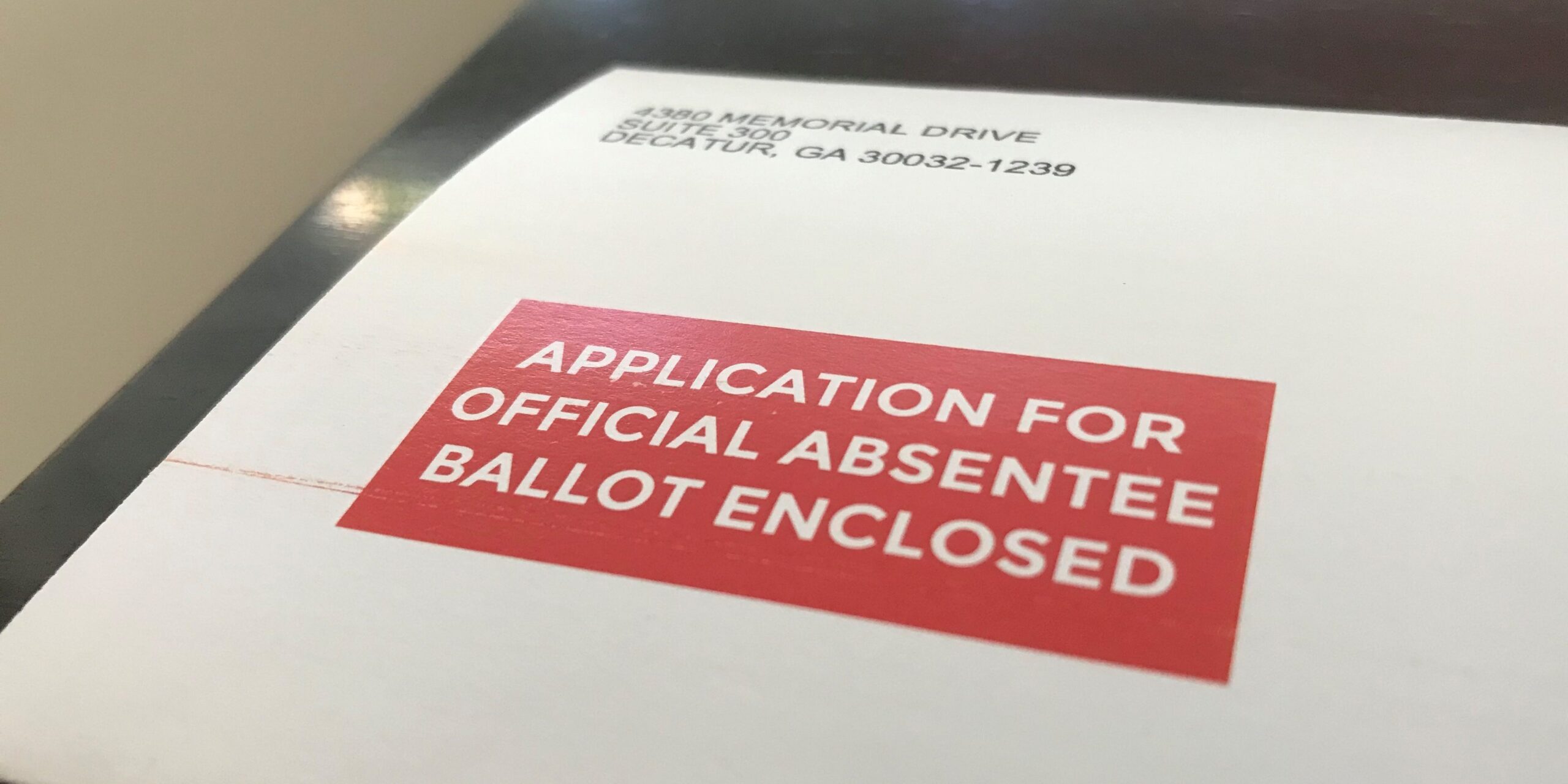The Georgia Senate on Tuesday pushed through the first batch of what could be a raft of restrictive voting measures Republican lawmakers say will safeguard voting but Democrats decry as based on a lie and aimed at overturning their party’s recent electoral success in Georgia.
The most important measure passed was Senate Bill 67, which carried on a largely party-line 35-18 vote. It would require that a voter include their driver’s license number, other state identification number or a photocopy of an approved ID when applying for an absentee ballot.
That would replace the current process of signature verification, one of the key elements former President Donald Trump and others attacked following Trump’s November loss in Georgia.
“It’s not about disenfranchising voters. It’s not about overly burdening the electorate. It’s about efficiency, integrity, allowing the Georgia public to have confidence in the vote,” said Sen. Larry Walker, a Perry Republican who sponsored Senate Bill 67.
The bills move to the House for more debate.
Supporters said anyone who votes in person in Georgia has to show identification, and that absentee voters should do the same.
Walker said submitting an identification would work for 97% of voters and said the other 3% could vote in person, saying he wanted to get county elections “out of the middle” of verifying signatures.
Democrats, though, disputed that the measures were needed or would affect voters neutrally. Sen. David Lucas, a Macon Democrat who has served in the General Assembly since 1975, gave a discourse on disenfranchisement in the South after the Civil War, saying “we all know what happened back in the day.”
“That’s what this bill is about, that’s what every election bill is about,” Lucas said, mopping away tears with a handkerchief. “The election didn’t turn out the way you want and you want to perpetuate the lie that Trump told.”
Lucas pledged lawsuits would follow.
“We’re going to fight, there’s no question about it, what’s going to happen, and you’re going to spend taxpayer money trying to defend it,” Lucas said.
Tuesday was the first time this year an election bill reached the floor of the state House or Senate. Republicans are working on numerous proposals, including some that would decrease early voting days and prohibit absentee voting without an excuse.
Senators also approved Senate Bill 188 by a vote of 34-18. It would require polling officials to figure out how many total ballots were cast by method, before any results could be reported. If passed, the measure could delay results being released by several days.
Sen. Bill Cowsert, an Athens Republican who sponsored the measure, denied the measure would cause delays. He said he was responding to concerns that Republicans were leading on election night in some instances, but that Democrats overtook them as additional absentee ballots were tallied. He referred specifically to a video from a Fulton County counting center that showed ballots being moved around. Trump partisans decried the video, but investigators said there was no wrongdoing.
“Give people the totals. Let people have the piece of mind that nothing’s being done in the dark of night,” Cowsert said, adding he wanted to avoid a “moving target.”
Opponents, though, said delaying election results would decrease confidence.
“This would just cause more angst,” said Sen. Elena Parent, an Atlanta Democrat.
Senators approved Senate Bill 184, which would require counties to report more quickly the names of who voted in an election. Cowsert said the measure would alleviate concerns that some voters have voiced that their votes might not be counted or that someone else might vote in their name.
The Senate also passed Senate Bill 40, a bipartisan measure that allows counties to begin processing absentee ballots eight days before an election.









